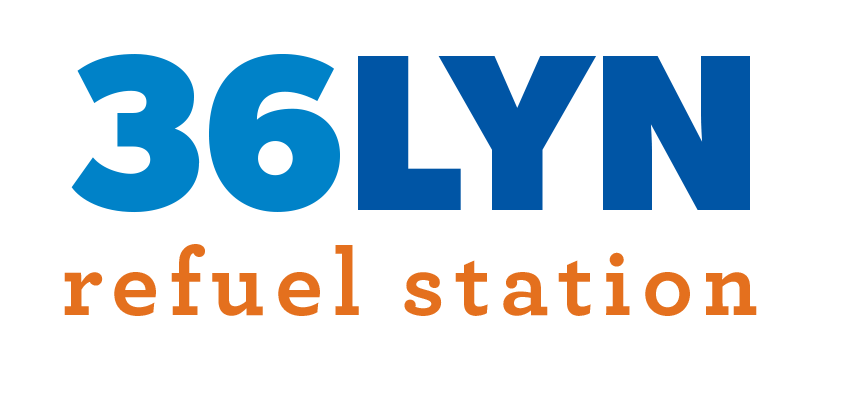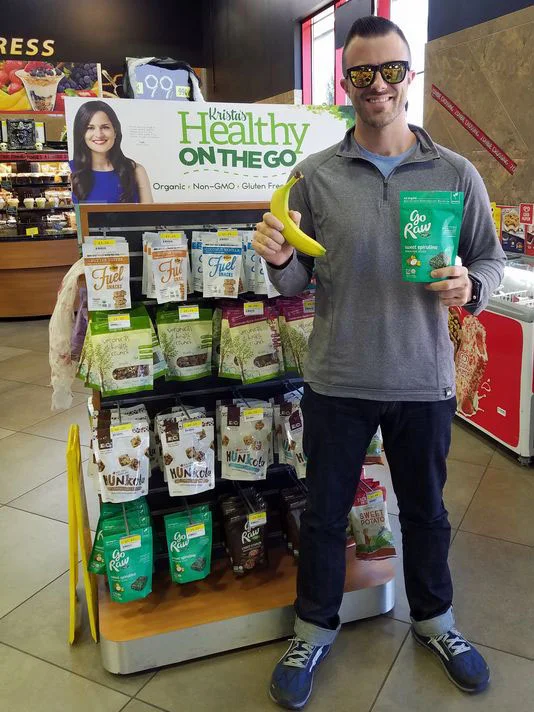Iowa man eats nothing but gas station food for a month — but stays healthy
Original article from Journal Sentinel.
For 30 days, Frank Beard ate every meal exclusively at gas stations.
Breakfast, lunch, dinner, snacks ... everything.
At the time, in 2016, Beard was a construction project inspector whose job took him on the road about five days a week. The 30-year-old from Des Moines, Iowa, normally dined at restaurants, but he wanted to see what it would be like to consume nothing but gas station grub for a full month.
He traveled through nine states, mostly in the Midwest and the South, and he even stayed on his gas-station diet when he was home on weekends.
Beard ate at dozens of gas stations, tracking every calorie of every meal, carefully documenting his experiences good and bad.
To keep from packing on pounds and clogging his arteries, he abstained from things such as hot dogs on warming rollers, burgers under heat lamps, cheese-smothered nachos, cookies and doughnuts.
But the first 10 days of his experiment left him with a gnawing feeling in his stomach.
“I worried that I’d bitten off more than I could chew,” Beard said. “I was mostly outside of Dallas and Fort Worth, and I continually encountered the sort of gas stations that reinforce the ‘nutritional desert’ stereotype.
“I was fully prepared to tough it out, of course, to spend a month eating snack bars, beef jerky and the occasional chicken sandwich,” but then the road trip got smoother.
What else did he find at gas stations chosen randomly on his business trips?
Turns out the variety of salads, sandwiches and even freshly prepared ethnic meals was quite impressive.
“If you want to see what convenience stores can actually be, go to Miami, where gas stations have all sorts of innovative restaurants inside. One in particular, called Panna, is mostly Colombian and Venezuelan food. It completely blew me away,” Beard said.
Beard said Midwestern gas-station cuisine was pretty good, too.
He found a convenience store in Springfield, Mo., that specialized in organic food.
Called “Farm 2 Counter,” the store is run by a former chef for private yachts.
“The local community loves it. They can walk to the store and get fresh produce,” Beard said.
Kwik Trip gas stations also were high on his favorites list.
The La Crosse-based chain of more than 400 stores has a commissary, a bakery and a dairy and beverage plant. It offers fresh fruit, vegetables, meat, salads and sandwiches, among other things.
“Kwik Trip has a fantastic selection, but so do many of the other large brands,” Beard said.
In Minneapolis, he found a gas station called 36 Lyn Refuel that specialized in locally produced foods, including healthy and indulgent items.
He also found stores where he could get a bowl of grilled chicken, avocado, beans and rice — the kind of meal he would make for himself at home.
But the road trip wasn’t without its challenges, Beard said, as often he couldn’t find fresh vegetables.
“I found them at large chains like Sheetz and Kwik Trip, but rarely inside smaller stores.This is concerning because consumer surveys show that folks are increasingly turning to convenience stores, not just for snacks but for actual meals,” he said.
After the 30 days, Beard said, his health hadn’t suffered. In fact, he had lost 6 pounds.
That probably surprised some folks.
“The funny thing is when you tell someone you are eating at gas stations for a month, they kind of give you a strange look," he said. "They ask if you are feeling OK, if you have been sick, because they assume you are just going to be eating bad food. But a person can shop at the most upscale grocery stores and still be unhealthy if they buy the wrong things.”
Beard has since left his construction job and now works for GasBuddy, a national service that lets people search for gasoline prices by city and state. In his new position, he promotes the convenience-store industry, and he’s also gotten involved in the Iowa Healthiest State Initiative, a nonprofit with a goal of making Iowa the healthiest state in the nation.
The issue of “food deserts,” which are urban neighborhoods where it’s difficult to find affordable, fresh food, weighs on his mind, especially since about 90% of Americans have a gas station or convenience store nearby.
“If you put healthier options in those stores, it would solve a massive part of the problem,” Beard said.

